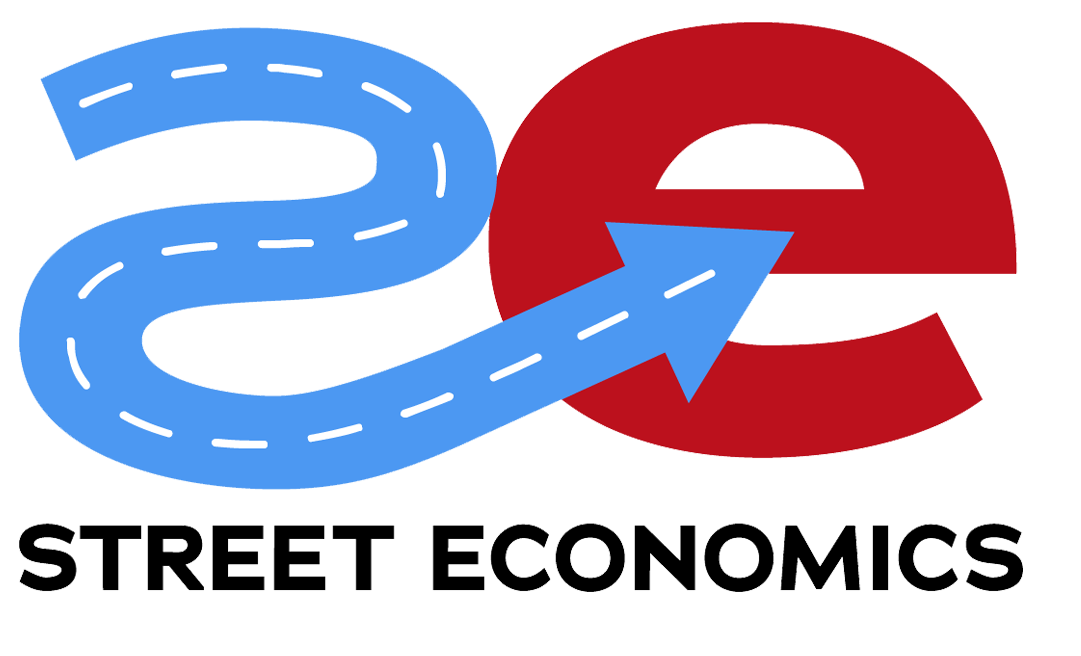Good morning, Bureaucracy Busters
BusinessFlare Take
TESLA’S ROBOTAXI DREAMS MEET WAYMO’S ACTUAL ECONOMIC DEVELOPMENT REALITY – Cities betting on Tesla’s robotaxi promises for economic development are watching their autonomous vehicle strategies crash into reality while Waymo quietly builds actual infrastructure and employment in Phoenix, San Francisco, and Los Angeles. Tesla continues to push back its robotaxi launch date, while Waymo operates 700 vehicles, providing 150,000 weekly rides and creating real jobs in fleet maintenance, remote assistance centers, and local operations. The economic development lesson is brutal: actual deployment beats PowerPoint promises every time. Cities still waiting for Tesla’s phantom fleet are missing real autonomous vehicle economic opportunities happening right now with companies that deliver instead of delay. Phoenix didn’t wait for perfect; they partnered with Waymo early and now host the largest commercial robotaxi operation in the world, generating hundreds of jobs and positioning themselves as the autonomous vehicle capital while other cities chase vaporware.
Street Economics Insight
FLORIDA WEALTH MIGRATION EXPOSES HARSH REALITY OF MUNICIPAL COMPETITION – Palm Beach County leads the nation with $5 billion in net household income inflow, not because of brilliant government policy but despite mediocre municipal leadership, as private sector determination overcomes bureaucratic obstacles. Miami-Dade ranks 6th nationally with $2.1 billion and Broward 8th with $1.5 billion, pulling wealth from states like New York, California, and Illinois whose cities actively repel success through punitive taxation and regulatory hostility. The uncomfortable truth for local economic developers: wealthy households and businesses flee to Florida for lifestyle and tax advantages the state didn’t create through clever policy but through benign neglect of private sector activity. While developers acknowledge affordability challenges, they’re solving them through market innovation like smaller, well-designed homes rather than waiting for government solutions that never materialize. Cities losing billions in wealth migration can either accept this reality and reform their hostile business climates, or keep wondering why their tax base evaporates to places that simply get out of the way. Special thanks to Scholastica (Gay) D. Cororaton, CBE, CRE of Miami Association of Realtors for posting this information!
Drama Meter Reading (and some Red Tape Empire Book Drop)
NYC MAYORAL CANDIDATES PROMISE HOUSING MIRACLES WHILE IGNORING ZONING REALITY – New York City’s mayoral race has devolved into a fantasy housing promise competition, with candidates pledging to build hundreds of thousands of units while refusing to address the city’s self-imposed zoning and red tape straitjacket that makes construction economically impossible. Each candidate outdoes the next with magical housing targets, yet none will touch the third rail of reforming community board vetoes, landmark restrictions, or parking requirements that add $100,000 per unit to construction costs. The political theater reaches peak absurdity as they blame developers for high prices while maintaining regulations that ensure only luxury housing pencils out financially. This is municipal governance at its most cynical: politicians promising outcomes they know their own policies prevent, hoping voters won’t notice the contradiction. Other cities should study this circus as a masterclass in how political cowardice on zoning reform guarantees permanent housing crises while letting politicians posture as housing champions.
Book Drop
THE CHEMISTRY OF ECONOMIC GROWTH PROVES CITIES CREATE THEIR OWN CATALYST FAILURES – Public squares and markets exemplify the collision theory principles from “The Chemistry of Economic Growth,” where successful economic reactions require the right elements, proper conditions, and sufficient activation energy to overcome barriers. The Social Life Project’s research on squares as community hearts and markets as their souls demonstrates how cities either catalyze or kill economic reactions through design and policy decisions. Just as chemical reactions need proper temperature and pressure, economic development requires the right regulatory environment and infrastructure investment to enable productive collisions between entrepreneurs, customers, and capital. Too many cities poison their own economic reactions with excessive permits, hostile regulations, and dead public spaces that prevent the natural collisions that create growth. The chemistry metaphor from “Confessions of a Physical Chemist” (the memoirs of the father of BusinessFlare® founder Kevin Crowder) leading into economic principles shows why some places bubble with activity while others remain inert: successful cities lower activation energy for business formation rather than adding bureaucratic barriers that prevent reactions entirely.
ECOSINT Signal
CHINESE MILITARY’S MOSQUITO DRONES REVEAL MUNICIPAL INFRASTRUCTURE VULNERABILITIES – China’s unveiling of mosquito-sized surveillance drones exposes a massive blind spot in municipal infrastructure security that most cities haven’t even begun to address. These miniature drones can infiltrate critical infrastructure, from water treatment plants to power grid controls, through ventilation systems and access points cities never imagined needing protection. The economic intelligence implications are staggering: municipalities investing millions in traditional security while leaving their infrastructure vulnerable to technology that costs hundreds. Smart cities rushing to connect everything to the internet are creating attack surfaces for adversaries using drones smaller than a quarter. Local governments need immediate assessment of critical infrastructure vulnerabilities to micro-drone infiltration, starting with water systems, power generation, and emergency services facilities. The cities that ignore this warning will discover their smart city investments became stupid security liabilities when critical systems fail.
Red River Flavor
REMOTE WORK KILLS CORPORATE CATERING WHILE CREATING NEIGHBORHOOD FOOD ECONOMY – The corporate catering industry’s 40% revenue collapse since 2020 reveals how remote work hasn’t killed food service but relocated it from sterile office parks to actual neighborhoods where people live and want authentic food experiences. Major catering companies that built empires on mediocre sandwich platters and sad salad bars are discovering their processed, mass-produced offerings can’t compete with local restaurants now serving remote workers who have time to seek quality. This shift exposes the lie that corporate food systems were ever about convenience or value; they survived on captive audiences with no alternatives. Smart cities are capitalizing on this disruption by reducing restrictions on home-based food businesses, food trucks, and neighborhood commercial kitchens that serve the distributed workforce. The death of corporate catering marks the birth of authentic neighborhood food economies that create more jobs, better food, and actual community connections rather than forced office pizza parties.
The Music Cities
MUSIC ALLY’S ENTREPRENEUR AWARD RECOGNIZES TECHNOLOGY RESHAPING VENUE ECONOMICS – The International Entrepreneur of the Year award at Music Ally Next highlights how music technology innovation drives economic development far beyond traditional venue models, creating entirely new revenue streams and employment categories. Cities still thinking music economy means just venues and festivals are missing how music tech entrepreneurs create high-wage jobs in software development, data analytics, and creative services that don’t require massive public subsidies. The winning innovations demonstrate how cities can leverage music technology sectors for economic diversification without the infrastructure demands of traditional entertainment districts. Smart municipalities are creating music tech incubators and providing regulatory sandboxes for music blockchain, AI composition, and fan engagement platforms that generate more sustainable employment than seasonal venue work. This recognition of music entrepreneurship over traditional industry players signals where forward-thinking cities should focus their music economy strategies: enabling innovation rather than subsidizing stages.
Space Economy Signal
BEZOS AND TRUMP ALLIANCE SIGNALS NEW SPACE ECONOMY POWER DYNAMICS FOR CITIES – Jeff Bezos’s strategic positioning with the incoming Trump administration reveals how space economy success increasingly depends on political navigation rather than pure innovation, creating new considerations for cities pursuing aerospace economic development. Blue Origin’s calculated moves to align with administration priorities demonstrates that municipalities can’t just offer tax breaks and land; they need sophisticated understanding of federal space politics and contracting dynamics. The rapprochement signals potential Blue Origin expansion in politically favored states, meaning cities in those regions should prepare aerospace workforce development programs now to capture coming investments. This political-industrial space complex creates opportunities for savvy municipalities that understand the new rules: federal alignment matters more than local incentives. Cities that recognize this shift and position themselves accordingly will capture Blue Origin’s next facilities while those offering only traditional economic development packages will watch opportunities launch elsewhere.
Purple Cow of the Day
HOW CIGARETTE COMPANIES CREATED THE ULTRA-PROCESSED FOOD PLAYBOOK KILLING YOUR CITIZENS – The revelation that Philip Morris and R.J. Reynolds literally wrote the corporate playbook for ultra-processed food addiction exposes the of economic development: do some cities actively court companies using cigarette marketing tactics on food? Major food conglomerates acquired by tobacco giants in the 1980s transferred addiction-maximizing strategies directly from nicotine to hyperpalatable foods, creating the obesity epidemic now crushing municipal health budgets. These corporations perfected using salt, sugar, and fat combinations that trigger the same neural pathways as nicotine while lobbying for agricultural subsidies that make health-destroying ingredients artificially cheap. Cities celebrating food manufacturing facilities are essentially welcoming cigarette factories that happen to make edible products using identical addiction-creation strategies. The economic development purple cow no municipality wants to acknowledge: those job-creating food plants increase long-term municipal costs through diabetes, heart disease, and decreased workforce productivity that far exceed any tax revenue they generate.
About Street Economics Daily Street Economics Daily cuts through noise, jargon, and bureaucracy to deliver sharp, actionable insights for civic and economic development professionals. Blunt, irreverent, and grounded firmly in reality, it’s essential daily reading for city leaders who refuse to settle for outdated strategies.
BusinessFlare | Street Economics | Drama Meter | The Music Cities | Goodnight’s Red River



No responses yet